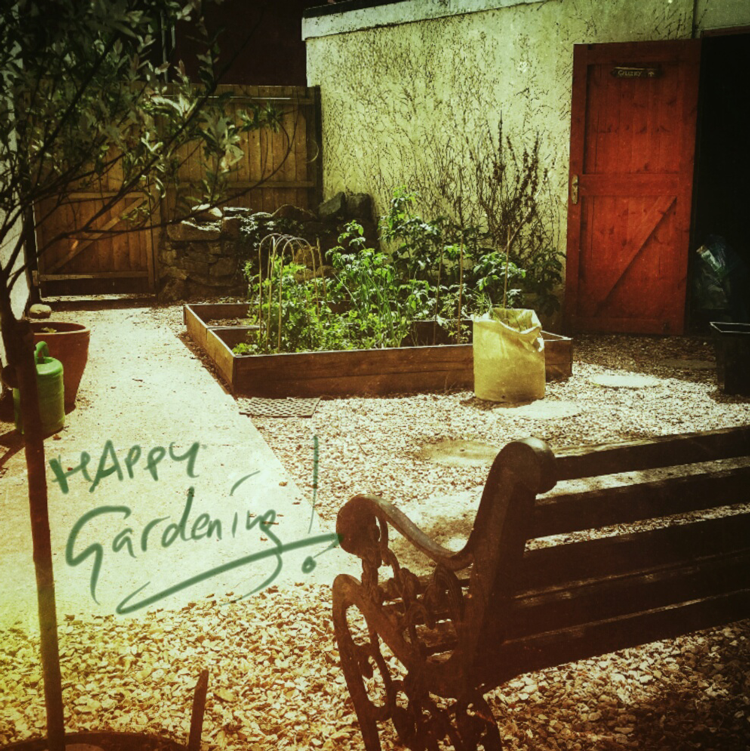
Few people think of gardening as exercise, or even think of it as having any health benefits at all. So you might be surprised to learn that not only is it a fantastic low-impact low-intensity exercise, it might be the perfect exercise when it comes to breast health, because it makes a positive impact on almost every controllable breast cancer risk factor.
Health benefits of gardening aside, now is the perfect time to get your hands dirty. It’s spring and April is National Gardening Month! And with most New Yorkers stuck at home, gardening makes a productive way to pass the time, fight cabin fever, ease food insecurity (hello? Victory Garden 2.0?), and spend time with kiddos who are home from school.
Gardening as Exercise
Burning 324 calories per hour for a 150 lb. person, some would dismiss gardening as too low-intensity, or not even a workout at all, but it’s on par with other popular workouts like walking and yoga which burn 324 and 288 calories per hour, respectively, for the same 150 lb. person (1). If you’re looking for extra burn, more intense gardening tasks like digging, bagging leaves, landscaping and hauling can clock in at 350-600 calories per hour (2).
Good news is you don’t need to be out of breath or feel your heart pound out of your chest to get the benefits of exercise—even mild exercise lowers your risk of breast cancer. Like all exercise, gardening reduces the risk of obesity as well as levels of estrogen, stress, and depression (3). And like all outdoor workouts, you’ll be soaking up cancer-fighting Vitamin D while you bask in the sunshine (4).
Gardening for Vegetables
What sets gardening apart from workout standard-bearers like running, yoga and your favorite HITT routine is that (drumroll please!) it produces food. And not just any food, but fat-free organic fruits and vegetables rich in antioxidants, fiber, carotenoids, and cancer-fighting vitamins like lycopene. This makes gardening a serious two-for-one cancer fighter, positively impacting both activity levels and diet.
A ready supply of free radical-fighting fruits and veggies can help you reach your Meatless Monday goal or help you get in line with FDA’s MyPlate recommendations of filling 50% of your plate with fruits and veggies. With 42% of all cancer cases caused by modifiable risk factors such as obesity, physical inactivity, and low consumption of dietary fiber and fruits and vegetables, it’s more important than ever to get in the garden.
Gardening as a Healthy Family Lifestyle
If those weren’t enough reasons to grab a shovel, there’s also the family aspect. Studies have shown the vital importance of having a supportive social environment on creating and maintaining a healthy lifestyle, and cancer prevention in particular. As we know from our school breast health programs, kids that learn healthy behaviors become healthy adults. And adults surrounded by healthy family members are more likely to stay healthy themselves.
Gardening is an activity the entire family can engage in and create a lifestyle around. The question, “what’s for dinner?” is more exciting for kids who have been watching their green bean tipi grow for the last two months. And adults are more committed to healthy eating if they’ve grown it themselves. There’s no more motivating nutrition coach than your own pile of juicy homegrown tomatoes waiting for you on the kitchen counter.
Beyond the health benefits, gardening can be an enjoyable stress-relieving and calming hobby. Many long-time gardeners report a feeling of peace and spiritual oneness with the earth when they are in the garden. Relax, breathe deep, enjoy the sunshine, the breeze, the solitude and the simplicity. Don’t you feel less stressed already? See, we said gardening was the perfect exercise!
Sources
- “Calorie Burn Rate Calculator,” University of Rochester Medical Center
- “Everyday Calorie Burners,” WebMD.com
- “Psychological Stress and Cancer,” National Cancer Institute
- “Vitamin D and breast cancer: A systematic review and meta-analysis of observational studies,” Clinical Nutrition ESPEN, 2019